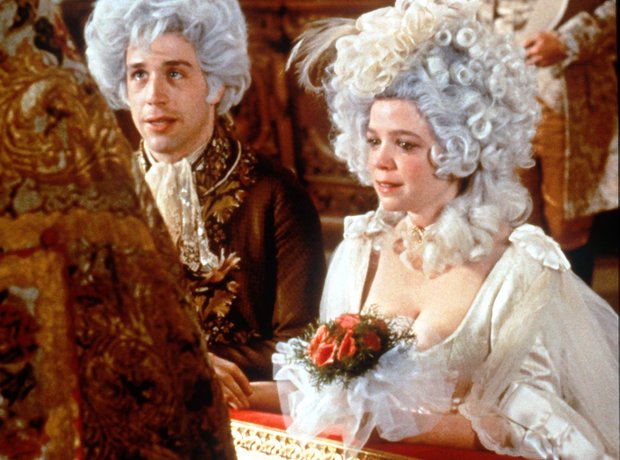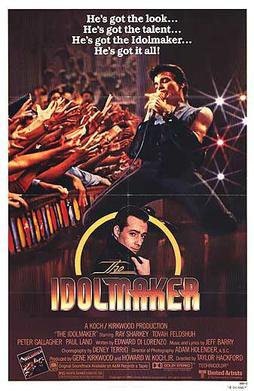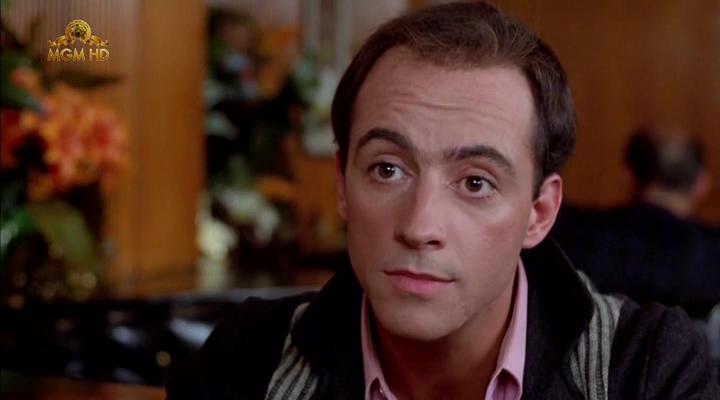AMADEUS - Director's Cut
The Oscar winning Best Picture of 1984,
Amadeus is the sumptuous and expensive cinematic rendering of Peter Shaffer's Broadway smash that takes us to 18th century Vienna to provide insight into one of our greatest classical composers, Wolfgang Amadeus Mozart, with a slightly different cinematic path than most biopics. This film looks at Mozart through the people in his orbit and how they interpreted his extraordinary talent and its effect on Mozart the human being.

Based on Shaffer's 1980 Broadway play that ran on Broadway for over 1100 performances, the story begins as we meet an aging composer named Antonio Salieri, who has been confined to an insane asylum, claiming that he is responsible for the death of Mozart, which prompts the visit of a priest who encourages Salieri to confess to anything that would free his conscience and it is through this offer of spiritual purging that the story unfolds.
We are introduced to Salieri, a man whose passion for music has been all-consuming and he has dedicated his entire life to. He has vowed chastity and given up everything else in life, including the love and respect of his father, in order to serve his passion for music, which in his mind, mirrors his passion for God. His passion is so sincere that the death of his father comes as a relief, allowing him to pursue his passion and he is able to work his way into the position of court composer for Austria's Emperor Joseph II. As dedicated as he is to his passion, he finds himself consistently outdone by a brash, vulgar, skirt-chasing, nut case named Mozart whose passion is outwardly not as all-consuming, but his music is superior to Salieri's which makes him crazy, despite the general consensus among the Emperor and most of Austria that Mozart's music has "too many notes".
This film is a feast for the eyes and ears, as we watch lavish recreations of Mozart's greatest work and the conflicted reactions it brings to Salieri, who is driven inwardly crazy about the effortless skill in Mozart's work and Mozart's disdain of Salieri's, yet Mozart cannot deny the beauty and artistry of this vulgar creature's work and it is that conflict, along with the attention and acclaim that Mozart's work brings him, something Salieri never achieved.

What makes this different from your standard biopic is that the subject is really looked at through Salieri's eyes. We don't ever really get inside Mozart and what drives him except for some daddy issues, which come to full fruition after his father's death and the opera it inspired, "Don Giovanni", and it is this work that triggers the gifted composer's eventual downfall. One thing the film makes clear about Mozart's process is that every note he wrote, he wrote in his head first and then committed to paper.
It is this conflict in Salieri's mind that really is the heart and soul of this cinematic spectacle. The fascination of watching Salieri struggle with his jealousy of Mozart's artistry yet being unable to deny its existence is what is at the core of this story and looking past all the pomp and elaborate visual trappings, this is what the story is about. Mozart's alleged kookiness as a human being is consistently offset by Salieri's elaborate verbal descriptions of his music while the music vividly fills the audio.
Milos Foreman won his second Best Director Oscar for his meticulous direction, which might include some pandering to Peter Shaffer's Oscar-winning adaptation of his own play, which might spend a little too much time recreating some of Mozart's work and could have spent a little more time looking at the man himself. However, there is no denying the artistry that went into this production.

In addition to the film, Foreman, and Shaffer, a virtually unknown actor named F. Murray Abraham won the Oscar for Outstanding Lead Actor for his deeply moving performance as the conflicted Salieri...I actually preferred his work as the elder Salieri at the end of his life and Tom Hulce brings a surprising goofiness to Mozart that we don't see coming in a film like this, but it makes the character so human and likable. And though we have to wait for it, it's these two actors' work together near the end of the film when they are working together to put Mozart's "Requiem" to paper, is worth the price of admission, just a joy to watch. Mention should also be made of a superb supporting performance from Jeffrey Jones as Emperor Joseph II. The film is a little long, but is never anything less than riveting. Bouquets all around.




 and add them to the first post as soon as I get my computer back fro the shop. Just wanted to let you know so that you don't think I abandoned this HoF that I created.
and add them to the first post as soon as I get my computer back fro the shop. Just wanted to let you know so that you don't think I abandoned this HoF that I created. 




 . . .
. . . 

 I have a third movie that goes well with the other two. Well, I'll save it for the Musical Artist Movie Hall of Fame Part 2
I have a third movie that goes well with the other two. Well, I'll save it for the Musical Artist Movie Hall of Fame Part 2